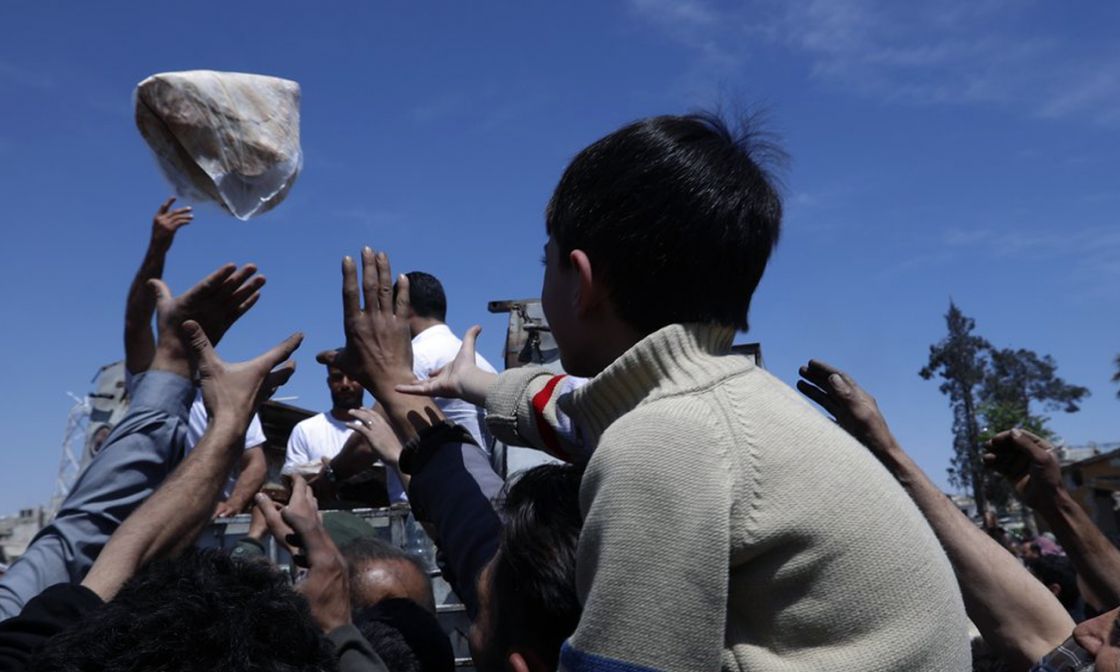- Editorials
- Posted
Kassioun Editorial 1067: Two Approaches to Dealing with Sanctions
US and Western sanctions are nothing new, they go back to more than 70 years, though their harshness varies from one place to another and from time to another.
History is full of Western sanctions and the ways of dealing therewith, which puts before us a large number of examples, which did not all follow the same manner and did not reach the same results.
Cuba, which has been subject to sanctions for over 60 years, and despite the great amount of damage to the economy, was able to maintain a reasonable level of self-sufficiency, and a level of public health services that outperform the US itself. Additionally, Cuba was able to maintain a real strong and popularly-backed political cohesion, and not through slogans and pretentions.
Iran, which was subject to some of the harshest sanctions for over 40 years, was able not only to maintain a reasonable degree of stability of its political system, but was also able to advance and become a strong country and a major factor in the regional equation.
China and Russia are unique examples, not only in standing up to sanctions, but also in taking on an offensive policy against those who imposed the sanctions, to the point that the damage to the side imposing sanctions became greater than that to the sanctioned side. Even Western economic and political experts themselves started describing those sanctions as “shooting one’s own feet”.
The inescapable question is why sanctions did not affect these countries (and others) in the catastrophic way they affected Syria?
What is the “unique” domestic recipe we have, which complements sanctions as if they are two parts of the same recipe that aims to destroy the country and its people?
Looking at this question, while observing the confrontational measures taken by China and Russia now, and those taken by countries like Cuba and Iran in facing sanctions, all this raises a set of questions:
• Why did the sanction not push Syria towards having the state put its hands on the interests of the foreign companies affiliated with the countries that imposed sanctions on us? In the Russian example, we know who stood and still stands against this type of measures today, are the oligarchs who are worried about their properties in the West. Do “our oligarchs” have the same fears?
• Why did our lira (the Syrian pound) continue to be tied to the dollar and euro, neither of which has stopped shattering the lira and along with it the people’s livelihoods and food security?
• What did the state not put its hands on the process of importing and exporting essential good; but even more than that, practically gave them to a small group of “big whales”, so much so that the prices of many of these basics soared and exceeded by huge proportions their international price?
• Why do our governments continue to faithfully implement the recommendations of the IMF and the World Bank in the processes of lifting subsidies, including the promotional mechanisms advised by those recommendations, such as “getting the support to those who deserve it”?
The list goes on and on. However, the summary is that there are two approaches to dealing with sanctions: one approach that confronts them, looks for alternatives, relies on fortifying the home front, and looks for effective economic relations with countries that share with it the political position, and succeeds in that; and the second approach seeks to adapt to the sanctions because it is “weaned” on its relations with the West, and does not want these relations to end.
This latter approach, which does not have the political will to sever ties with the West, and therefore does not have the political will to end Syrians’ pain and suffering, with times turns from an approach that prolongs and complicates the crisis, to an approach that completely destroys the country and its people.
Crystalizing and implementing a political will to confront the West from the economic gate was urgent, and has become more urgent to come out of the crisis with a united Syria – land and people – and crystalizing a political will of this type has only one path through the comprehensive radical change through the political solution based on UNSC Resolution 2254.


